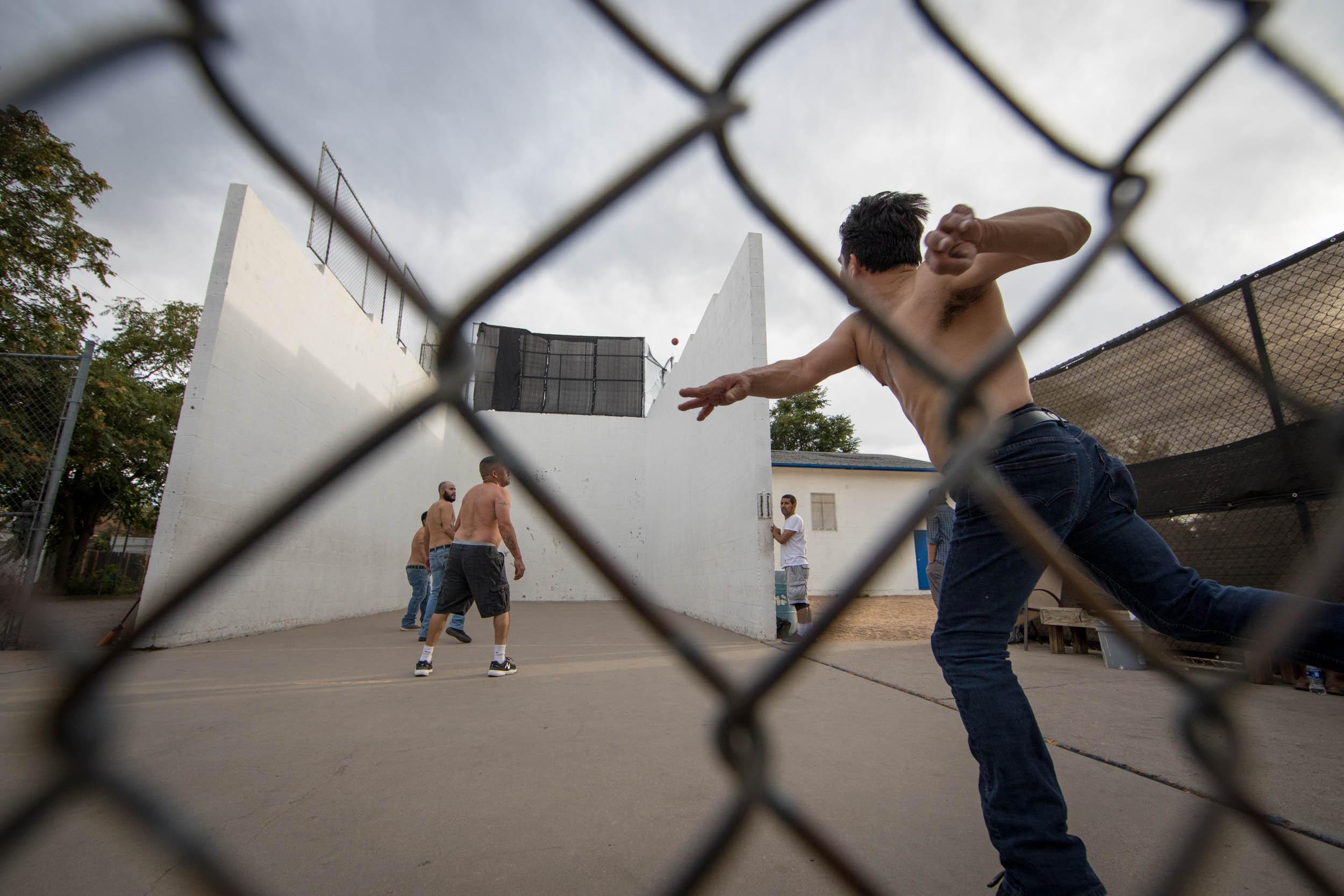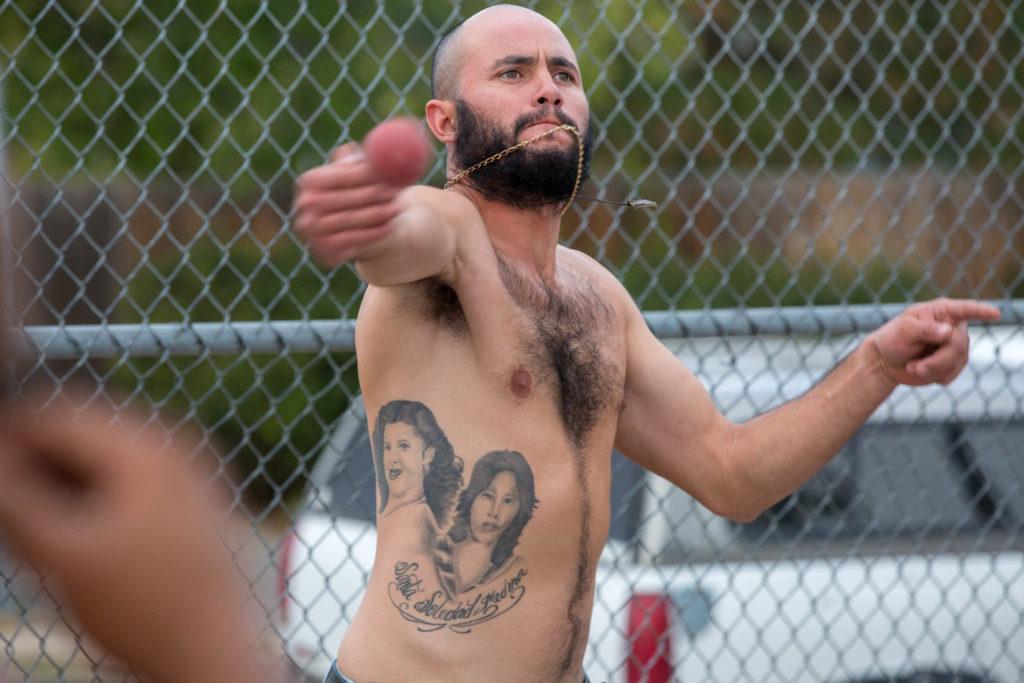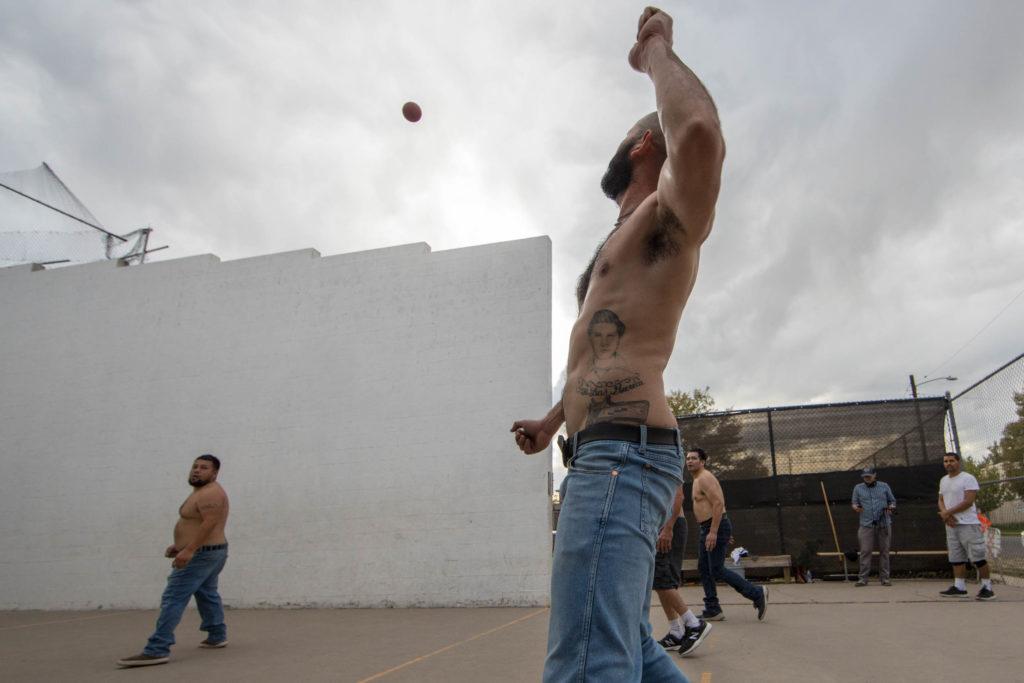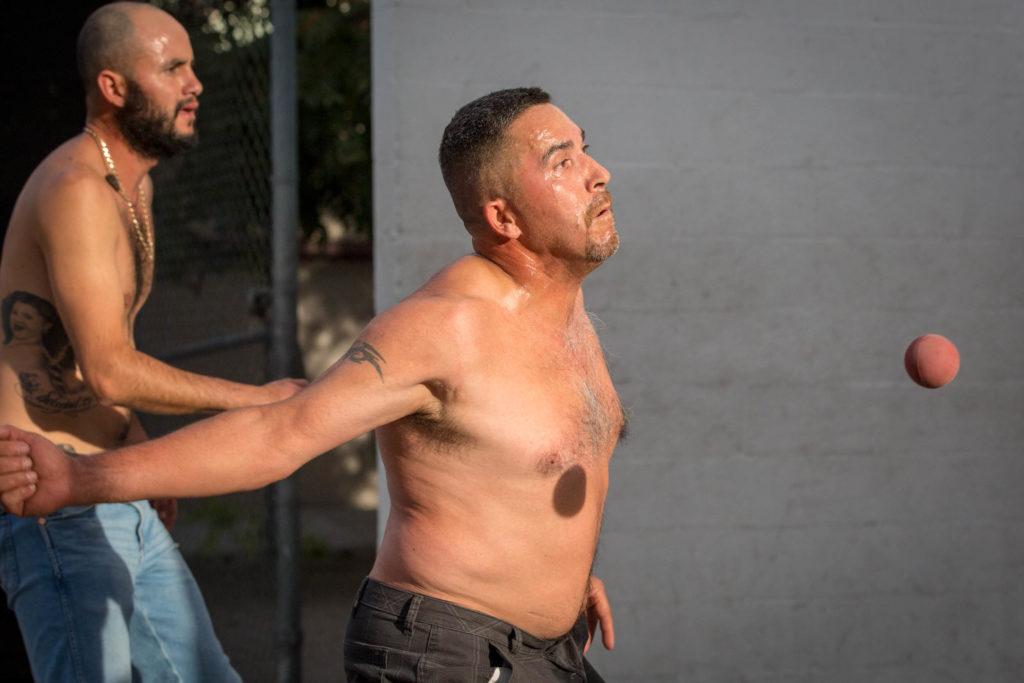
Manuel Gonzalez maintains law and order as four shirtless, sweaty men pound a rubber ball against a three-sided wall.
Gonzalez is the referee and scorekeeper of an intense game of handball at a court that’s been standing for nearly 50 years in Denver’s Whittier Neighborhood.
“Where I grew up in Zacatecas, Mexico, we had a handball court similar to this,” Gonzalez said in Spanish as a family member interpreted. “I’ve been playing since I was 8 and I’m 58 now.”
Gonzalez learned the game from his father. And for decades here at this court, perched on the southwest corner of 29th and High Street, Latino elders have taught younger generations to play.
The beat-up old court, owned by the local Salvation Army, isn’t much to look at. But it often attracts dozens of Latino families daily, with even larger crowds on weekends. Guys play card games while they wait to play. They bring their kids and spouses, and sometimes throw cookouts and play Norteño music on boomboxes.

“There are times when we bring players all the way from Mexico and you can easily get 50 people here to watch the game,” said Cayetano Guereca, who is known as one of the best players in the neighborhood.
Handball is similar to racquetball. Only, instead of a racquet, you use your hand to strike the ball. There are different ball weights for different games and you can play bare-handed or with a glove.
It’s one of the oldest games in the world, with roots going back to ancient Egypt. It’s a big sport in many Mexican villages. Many of the men who play here in Whittier are from places like Zacatecas, a state in Mexico, where they say some tournaments are so big they build town festivals around them.
One of the reasons handball is so popular in Mexico, and here in one of Denver’s oldest and most culturally-diverse neighborhoods, is largely because you don’t have to be rich to play.
“The villages we came from, some of the villages are really small so they don’t have the resources to play other games,” said Miguel Perez, who lays concrete for a living. “This game is easy to play, you don’t need equipment, you just need a handball.”
The game keeps players fit, both younger and older generations.
“I’m the worst player, but I still like to play,” said Ismael Villegas. Villegas is 64 and has been living in Denver almost as long as the court has been around. “I hurt my shoulder a while back, but I still like to play — but with people my age.”
But for many who play at this court — located a couple blocks of north Manual High School — there’s some worry that one day, it’ll go away.

The Whittier neighborhood and nearby Five Points have both undergone a dramatic transformation in recent years. Gentrification has revitalized much of the community, but the revamp has also driven longtime residents away. And when new things get built, old things are often torn down.
“Before, it was nothing but Mexicans and African Americans, you know,” Acevedo said of the changing neighborhood. “Now it’s turning, you know, white people starting to take over, making the houses pretty nice.”
Acevedo said he’s seen many businesses and homes shutter due to gentrification. He said “if they close this place, a lot of people are going to be stressed out.”
The players take it upon themselves to maintain the court. They often apply fresh white paint over graffiti, and have installed netting over the top of the court so balls don’t fly out into the streets.
Villegas said he’s not worried about losing the court, “As long as we keep the place clean, keep everything organized, we don’t get in trouble with the police or the neighborhood.”

Lt. Grant Hall heads the Salvation Army Denver Red Shield, located across the street from the court. He said there are no plans to replace the court and in fact, he would “fight to keep the handball court because of how much it's utilized daily by the people in our community.” Hall even said he’d like to see another wall built, so that more people can play at the same time.
The players have offered to do improvements like laying new concrete or planting new grass, if the Salvation Army can put up the money. Hall said he’s talked to the players about that, but nothing is planned, at least not right now.
Guereca said he’ll do whatever needs to be done to hold on to a place that has a special place in his heart.
“Some of my friends have been here almost 30 or more years,” he said. “This is the place where we hang out all the time. It’s become more like a family than friends.”








